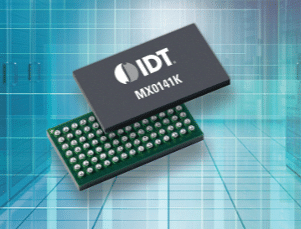Discover how this SSD design sets new data access speeds, power consumption, and durability standards, making it a game-changer for personal computing, enterprise servers, and various industries.

Solid State Drives (SSDs) have significantly advanced data storage technology, outperforming traditional Hard Disk Drives (HDDs) in speed, reliability, and efficiency. SSDs, devoid of mechanical components, offer enhanced data access speeds, reduced power usage, and superior durability. This advancement is critical for contemporary computing, as SSDs drastically decrease boot times and speed up application launches, improving the computing experience in personal, gaming, and professional environments. In enterprise settings, SSDs are crucial for data centres and servers, supporting high-speed data access and processing essential for managing extensive transactions and analytics. Their compact design and shock resistance benefit mobile and embedded systems, making SSDs versatile across industries like telecommunications, automotive, and healthcare, thereby redefining data storage capabilities and enabling the creation of faster, more dependable, and energy-efficient technological solutions.
This SSD reference design by Renesas introduces a U.2, 7 mm format that optimises capacity and performance within a compact design space. It incorporates Marvell’s latest high-performance enterprise SSD controller and IDT’s efficient 1:4 expander/multiplexer. This setup achieves maximum transfer speeds up to 800 MT/s per channel, supporting 1 TB of flash storage per channel with 512 Gb die × 16, avoiding performance degradation from signal integrity issues that would arise without the 1:4 expander.
The design highlights include the IDT MX0141K 1:4 expander and the Marvell 88SS1098 controller, which enhance expansion and control capabilities, supporting speeds of 800 MT/s per channel and offering significant storage capacity.It features a 1:4 high bandwidth 16-bit bus multiplexer with SSTL18 and SSTL12 signaling, compatibility with various NAND Flash standards including ONFI 3.0, 4.0, 4.1, and Toggle, and is encapsulated in a compact 4.0 × 11 mm FCCSP. It includes bi-directional passive port switches, minimal output skew, and propagation delay for high signal integrity, along with a low-speed MUX and control logic for efficient chip enable or port selection.
Central to the controller’s capabilities are Quad Cortex-R5 CPUs, offering dynamic branch prediction and DMA control, PCIe Gen3 x4 support, and a DDR controller accommodating up to 8GB of memory across various DDR standards, with ECC support for maintaining data integrity. The flash controller, compatible with multiple ONFI, JEDEC, and toggle standards, operates across 8 channels at 800 MT/s, ensuring a high-performance design suitable for cutting-edge applications.
Renesas has tested this reference design. It comes with block diagrams, instructions, and technical documents. You can find additional data about the reference design on the company’s website. To read more about this reference design, click here.






